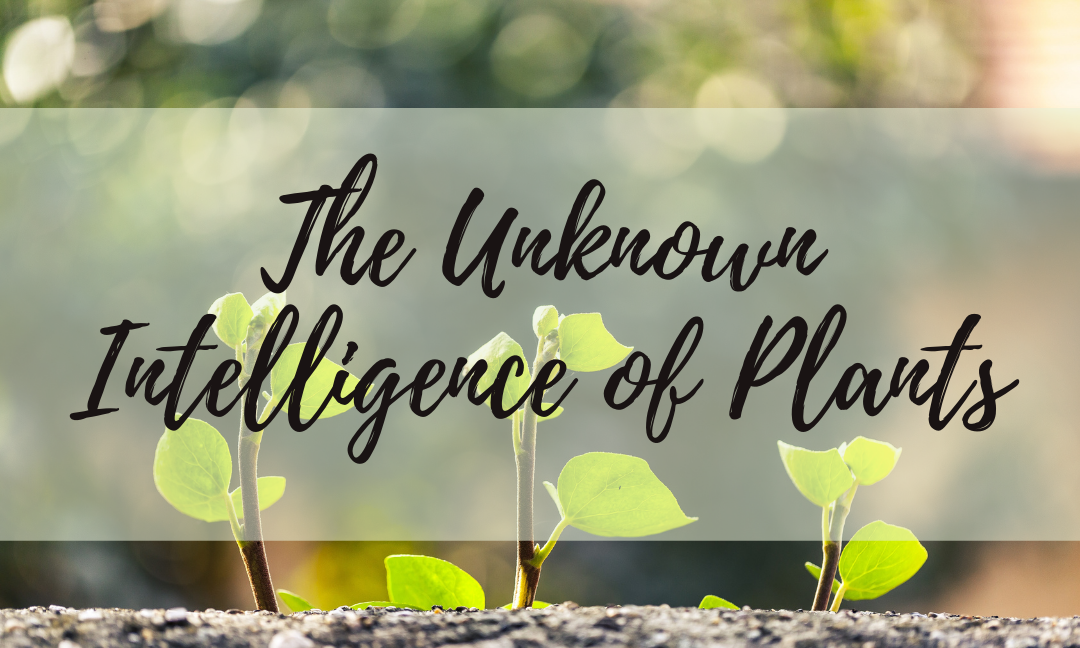Written by: Rita Banyameen
How plants, like us, can think, feel, and have similar functions like humans all without the use of a brain.
 As humans, we are told that we are among the most intelligent organisms on the planet, which has caused us to lose focus on other options. Today, we will be refocusing and exploring the vast possibilities of scientific research that has proven that plants, like us, can think, feel, and have similar functions like humans all without the use of a brain. During World War II, Grover Cleveland Backster Jr. served in the Navy and specialized in Hypno- and narco-interrogation, sometimes known as “truth serums.” He then joined the C.I.A. in 1948, claiming to have developed the agency’s polygraph program.
As humans, we are told that we are among the most intelligent organisms on the planet, which has caused us to lose focus on other options. Today, we will be refocusing and exploring the vast possibilities of scientific research that has proven that plants, like us, can think, feel, and have similar functions like humans all without the use of a brain. During World War II, Grover Cleveland Backster Jr. served in the Navy and specialized in Hypno- and narco-interrogation, sometimes known as “truth serums.” He then joined the C.I.A. in 1948, claiming to have developed the agency’s polygraph program.
Grover Cleveland was the first person to assert that plants have feelings. Backster connected a galvanometer to a houseplant and discovered that the plant’s fluctuating electrical activity matched Backster’s and his colleagues’ thoughts. The plants appeared to react differently depending on whether the thoughts were happy or negative, according to the experiment. Now, scientists did not accept this theory or Backster’s experiment at first, and it frequently resulted in a debate, but it did give scientists the idea to look into plants and their functions that are similar to humans, and they were able to come up with an explanation that has been studied for over forty years.
Scientists said that “Plants have electrical and chemical signaling systems, may possess memory, and exhibit brainy behaviour in the absence of brains” this sums up to Plants, like any other living thing, perceive and respond to touch, even painful touch. Mechanoreceptors are found in the membranes of both animals and plants. When the system is mechanically disrupted, such as when an animal eats a plant’s leaves or you pull flowers from your garden, those receptors convey messages to the plant’s cells. In this way, the plant “knows.” it’s being eaten or pulled from the ground. Plants can even sense when people touch them, according to scientists. Plant lovers have long suspected it, but now Australian scientists have discovered proof that plants can sense when people touch them.
We could go into more detail on how plants and people function similarly, demonstrating that they, too, are sentient organisms. Humans and plants both absorb nourishment in similar ways. Bacteria and fungus found in both the human intestine and fertile soil aid in their health by killing dangerous bacteria and breaking down chemicals to produce sustenance. Bacteria and fungus assist plants in absorbing nitrogen, phosphate, and potassium. Humans, on the other hand, generate vitamins K and B7. The genome is the basic structure of each living organism. A live thing’s genome is its entire set of genetic information, which it passes down to its offspring. The human genome is comparable to the genomes of other animals and plants. Around 25,000 genes are included in both the human and plant genomes. Human and plant cells both have six similar organelles or active components inside them, including cell membranes, mitochondria, and the nucleus. Plants and humans both have cellular respiration because mitochondria are present.
A great takeaway from this is to advise plant owners to treat their plants with respect because they are living organisms. Reduced stress, better air, and a happier environment can all be achieved by understanding the needs of your plants.
References
Abramson, A. (2020, November 24). Do Plants Feel Pain? Well, Kind Of. Apartment Therapy. https://www.apartmenttherapy.com/do-plants-feel-pain-36702267.
Do Plants Feel Pain? Here Are Some Facts to Chew On. PETA. (2021, May 18). https://www.peta.org/features/do-plants-feel-pain/.
People are Plants. (n.d.). http://www.autoenglish.org/listening/peopleareplants.htm.
Pollan, M. (n.d.). The Intelligent Plant. The New Yorker.
https://www.newyorker.com/magazine/2013/12/23/the-intelligent-plant.
Ratner, P. (2020, January 11). Plants have sensibilities, but are they conscious? Big Think. https://bigthink.com/surprising-science/plants-have-awareness-intelligence-scientists?rebelltitem=4 #rebelltitem4.
Ratner, P. (2020, January 11). Plants have sensibilities, but are they conscious? Big Think. https://bigthink.com/surprising-science/plants-have-awareness-intelligence-scientists?rebelltitem=6 #rebelltitem6.

